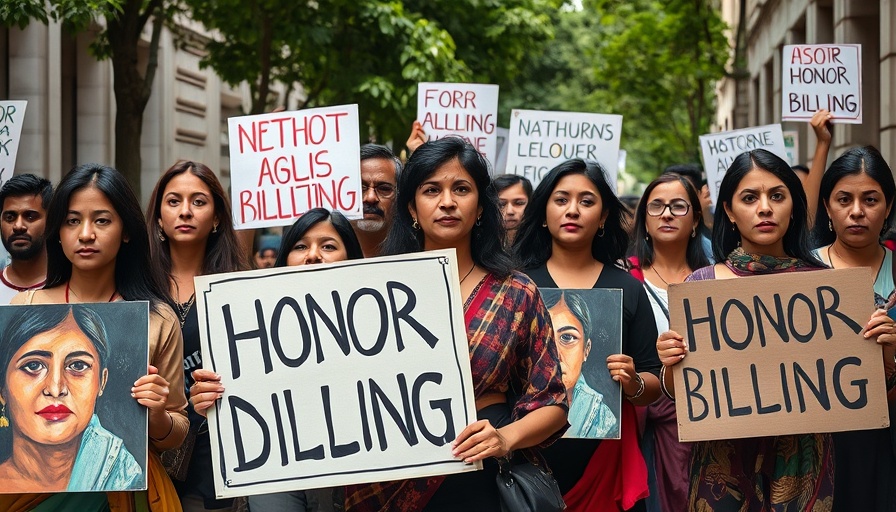
The Tragic Case of Bano Bibi
On a fateful day in southern Pakistan, a woman named Bano Bibi became the symbol of an ongoing crisis in a country where honor killings plague countless lives. In a moment captured on video that would ignite national outrage, Bano Bibi stood defenseless as she faced her executioner. Her reported offense? Being accused of having an affair. With a calm yet defiant stance, she declared, "You can shoot me. But nothing more than that." Tragically, moments later, she was killed, an all-too-common tragedy in a nation grappling with gender-based violence.
Understanding Honor Killings in Pakistan
Honor killings, a grim reality that leads to the deaths of more than one woman daily in Pakistan, stem from deeply entrenched patriarchal beliefs. Such acts are often justified by a community's misguided interpretation of honor, which unfortunately finds validation in various societal norms. The injustice faced by Bano Bibi highlights a larger systemic issue: the lack of accountability when it comes to punishing perpetrators of these heinous crimes.
A Powerful Response from Society
The nature of Bano Bibi's death reached far beyond her immediate community, sparking protests nationwide. Public outcry against her execution—originally ignored by authorities for weeks—was fueled by the viral nature of the video capturing the tragic event. Demonstrators raised their voices in solidarity, demanding justice not only for Bano but for all women subjected to honor-based violence. Senator Sherry Rehman, who has long advocated for women’s rights, expressed that these killings are largely ignored due to a culture that reduces women’s rights to mere familial honor.
Political Promises and Inaction
The Pakistani government has repeatedly promised to take steps against the persistent issue of honor killings, yet the rate of prosecutions remains dismally low. Politicians pledge reform but have failed to implement effective measures to protect women. Bano Bibi's case intensifies this call for action, as public sentiment turns against a system that allows such violence to continue unchecked. As Pakistani society grapples with reform, the call for accountability is more urgent than ever.
Future Predictions for Gender Violence in Pakistan
Looking ahead, there is potential for meaningful change in how gender violence is viewed and prosecuted in Pakistan. The growing visibility of honor killings through social media may awaken a new wave of activists and influencers pushing for legal reforms and societal change. With rising awareness and voices rallying against the status quo, there exists the possibility that Pakistan can break free from its vicious cycle of violence against women.
Global Relevance of Pakistan's Crisis
The violence witnessed in Pakistan resonates globally, drawing attention not only to the country itself but also to the larger issue of gender violence that permeates societies worldwide. Intersecting cultural, religious, and political dimensions should prompt a heightened awareness and response beyond Pakistan's borders, as many countries grapple with similar forms of violence against women. Bano Bibi's story, while specific in its context, reflects common struggles and injustices faced by women in multiple regions around the world.
Taking Action Through Awareness and Advocacy
In addressing these devastating trends, awareness and advocacy are crucial. Encouraging education on women's rights, supporting local organizations combating gender violence, and pushing for legal reforms are all ways that individuals can contribute to creating a safer environment for women. Each action can foster dialogue and create a ripple effect towards change. Bano Bibi's story must catalyze dedicated efforts to end honor killings and create lasting change in the lives of women across Pakistan.
As we reflect on these tragic events, it’s essential to share Bano Bibi's story to ensure that her death is not in vain but instead drives momentum towards significant societal reform and justice for all victims of gender violence.
 Add Row
Add Row  Add
Add 




Write A Comment